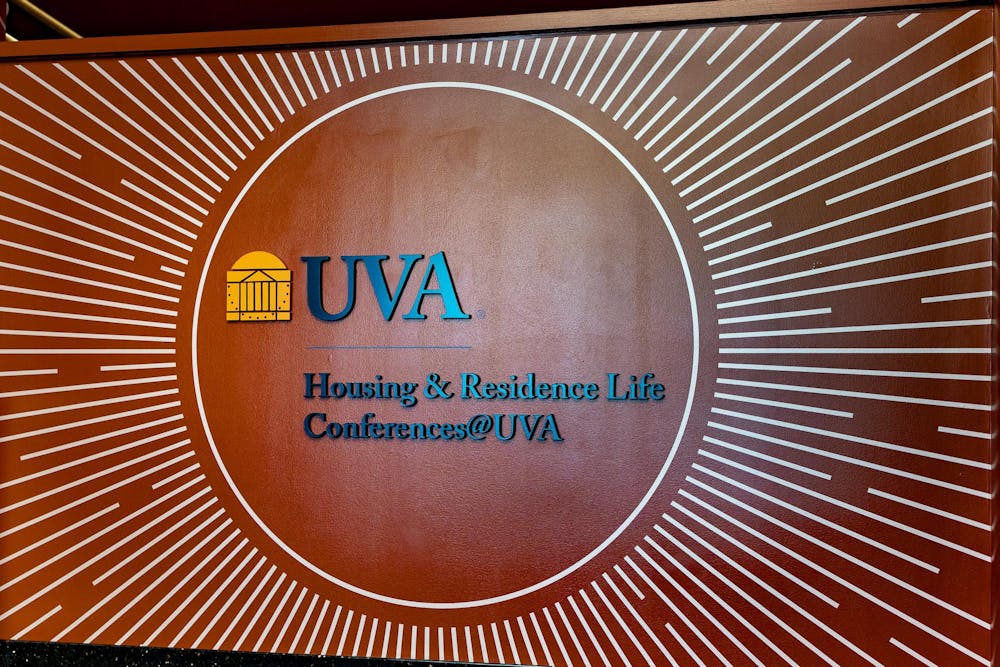After changing the assignment system last spring, Housing and Residence Life is now using another new system for matching residence staff to housing. All residence advisors and senior residents serving in the 25-26 year for HRL used an individual, online choice platform through the University’s housing portal, which is also used for upperclassmen housing selections. The only exception to this new process are RAs and SRs who will be living in any residential colleges, as they undergo a separate process.
RAs are student leaders who live in the residence halls and support students’ well-being, serve as mentors, and uphold University policies. SRs supervise the entire building, and oversee and work with RAs to establish community within their respective residence halls.
The prior HRL co-chairs from the 24-25 year, Masters in Public Health candidate Samantha Finnegan and Fourth-year College student Talia Dellarose, explained this change to RAs and SRs in a video shared with The Cavalier Daily. According to the video, the two decided to make this change due to four main motivating factors — student self-governance for RAs and SRs to choose where they live, equal chance for housing across Grounds, past housing portal success and having knowledge to aid residents in the future.
In practice, these factors meant that this year, RAs and SRs were separated into groups for housing selection based on seniority. SRs picked their housing March 31st, fourth-year RAs April 2, returning RAs April 3 and new RAs April 4. Each of these groups were randomly assigned a 15-minute time slot within their assigned selection group to make their selection.
The portal functions similarly to SIS where staff logs on using their NetBadge ID, selects their ideal living space out of the available options, reviews that choice and then “checks out.” When they announced the new system Finnegan and Dellarose strongly recommended that students come prepared with multiple backup options in case their first choice was already taken.
While there are staff conflict forms available — which allow residence staff to request a room change based on existing conflicts between RAs or SRs — Finnegan and Dellarose acknowledged that room changes are never guaranteed. Each form is evaluated on a case by case basis.
In previous years the RAs and SRs used a process which allowed SRs to choose their staff, considering factors like diversity and experience. RAs filled out a form, which included information such as past living experiences, preferences for location and approach to mixed-gender housing. Based on this form, SRs received a spreadsheet with all of the returning staff and new RAs to review and make selections. Through this process, SRs ultimately were able to select their own staff. Last year, this process changed slightly, with HRL preassigning 25 percent of returning RAs to specific housing — this led some SRs to feel a loss of autonomy in their RA selection process.
Third-year College student Vaneeza Shoab will be serving as a new SR next year and has mixed feelings about the change to the housing system. While she appreciates the increased autonomy for RAs, she is concerned about the potential for less diverse staff selections.
“I think that compared to last year, my ability to choose my staff and create the diversity that I wanted — from race, to clubs, to majors — was taken away,” Shoab said.
Second-year College student Mayna Malhotra will be a returning RA next year, and wishes that HRL had used more input from RAs and SRs before going forward with this decision last summer. According to Malhotra, the old process had more information and involved more communication between SRs and RAs.
“One of the big perks of being an SR is getting to choose your staff, and you get to really get close to the people that you're working with and living with, so that being taken away, had a negative impact on everyone,” Malhotra said.
Shoab also mentioned that there were technological challenges that came with the new website and made it difficult to navigate. She explained that because all SRs joined the portal simultaneously and selections were first come first serve, anyone who had difficulty navigating the website most likely did not receive their first choice because they could not move through the process fast enough.
“I know a couple new SRs were not happy with their selections, because they weren’t equipped for an association and got forced to choose it,” Shoab said.
Third-year College student Ryan Miller is a new RA and generally happy with the new system. He believes that the co-chairs acted with the staff’s best interest in mind. While both he and his friends are satisfied with the results of their housing process, he is curious to hear the wider sentiment during RA orientation in the summer. Miller believes that there will be pros and cons to any system.
“Unfortunately, HRL can only do so much, because you can't avoid winners and losers, in the sense of, like, those who are going to be better off and worse off,” Miller said. “There has to be some sort of randomness component to it to make it equitable. This is the nature of any sort of selection.”
This summer, incoming residence staff will undergo several training sessions aimed to orient them with the program and equip them with the resources needed to lead in dorm life. SRs will participate in a week of Senior Staff Training before all RAs and SRs participate in O-Week.







